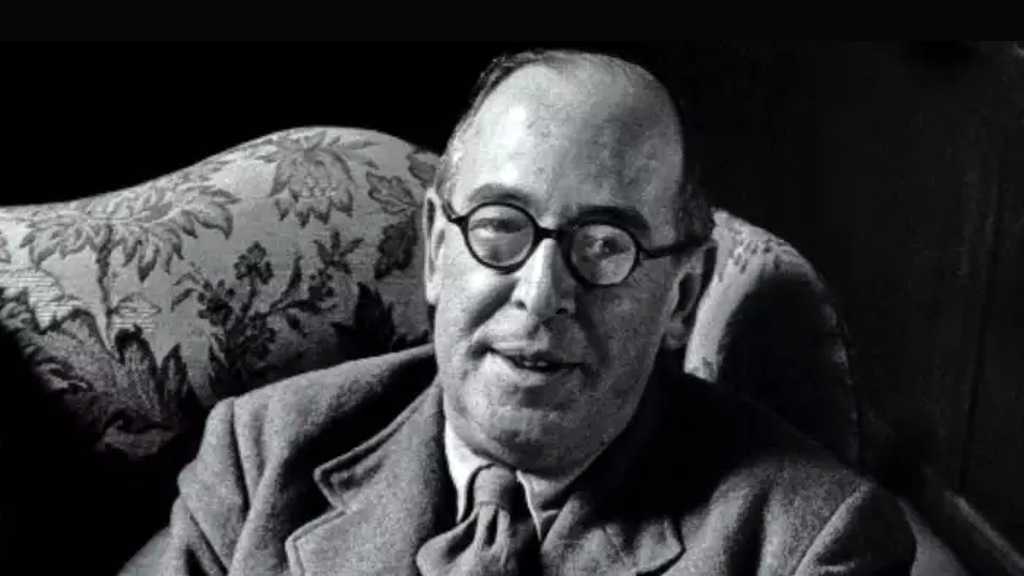“The greatest evil is not now done in those sordid dens of crime that Dickens loved to paint…But it is conceived and ordered…by quiet men with white collars…who do not need to raise their voices.” – C.S. Lewis (Preface to The Screwtape Letters)
It is as if he is speaking directly to us, warning us again, about today. I read C. S. Lewis for the first time in college. The Screwtape Letters, Mere Christianity, The Chronicles of Narnia all offered insight and immense enjoyment. But it was the subject of this essay – the loss of our humanity – which captured my attention and holds it still. Today I realize there is something prescient about the work and thus about Lewis as well. And this feeling is even more pervasive today, given the advent of AI, electronic implants and their profound implications for society.
Science and Western education seemed to be heading down a dangerous and frankly unwholesome path in 1940s England. So profound were the issues that the British literary scholar felt compelled to write three lectures addressing it, first published as The Abolition of Man in 1944.
It was the third talk that had the greatest impact. Lewis argued with considerable verve that the power to affect (in its entirety) the ensuing history of homo sapien will be profoundly altered by a relatively few technologists and bureaucratic planners who will through the advance of science affect foundational aspects of human biology.
The three brief chapters making up The Abolition of Man — “Men without Chests,” “The Way,” and “The Abolition of Man” — were originally presented as the Riddell Memorial Lectures at the University of Newcastle in February of 1943. In the lectures especially the one from which the book takes its title, Lewis warns perceptively that “if any one age really attains, by eugenics and scientific education, the power to make its descendants what it pleases, all men who live after it are the patients of that power.” Far from experiencing more freedom from toil and advancing the human race, these new “creatures” will be “weaker, not stronger: for though we may have put wonderful machines in their hands we have preordained how they are to use them.” As a result of sophisticated biotechnology, “Man’s conquest of Nature, if the dreams of some scientific planners are realized, means the rule of a few hundreds of men over billions upon billions of men.” Lewis concludes: “The final stage is come when Man by eugenics, by pre-natal conditioning, and by education and propaganda based on a perfect applied psychology, has obtained full control over himself. Human nature will be the last part of Nature to surrender to Man. The battle will have been won.”
Concern for Modernism
The lectures betrayed Lewis’ profound mistrust of modernity in general and its educational pursuit in particular. Modernism’s tendency toward moral relativism and progressive scientific policy illustrated his concern in each of the lectures.
Biotechnological experimentation was of great concern for Lewis, especially with humanity as its “patient,” the potential for which he also considered in his dystopian novel, That Hideous Strength. In both works Lewis cautions a real possibility for humankind being reconfigured by scientific programmers who have “stepped outside the Tao.” Every human being, potentially, would at some point reflect in her or his very cells a new nature designed and developed by biotechnologists. Homo sapien’s new nature would exhibit a moral compass based on popular but essentially modern liberal agendas built around progressive thought and evolution, narratives that would influence even scientific planning. Lewis wrote famously, “For the power of Man to make himself what he pleases will be the power of some men to make other men what they please.” These “man-moulders of the new age will be armed with the powers of an omnicompetent state and an irrepressible scientific technique: we shall get a race of conditioners who really can cut out all posterity in any shape they please.”
For the Conditioners – Lewis’s moniker for the scientists and bureaucratic functionaries – are forever at work on a new human race. A new pedagogy, informed by advanced psychology, treats values and feelings as mere physical phenomena to be produced or repressed in students so as to elicit the appropriate response.
Traditions are turned upside down. Rather than a deeply rooted moral awareness to be refined,
values become a pedagogical outcome to be reproducd – they become “the product, not the motive, of education.” The Conditioners will ultimately acquire the capability to “produce conscience and decide what kind of conscience they will produce.”
Future academic and governmental elites will define “good” and then set about producing this newly invented good in humankind by a combination of pedagogical technique and biotechnology. Lewis seems quite certain that they “know quite well how to produce a dozen different conceptions of good in us,” though guided by no external, objective standard of good or morality themselves. The timeless Tao will be ignored; thus, the Conditioners become the arbiters of good and bad, right and wrong.
What Lewis warned us about has already begun its journey toward the elimination of humanity from homo sapien. The Conditioners are busy implanting electronic devices in the brains of mice for the purpose of control, preparing for the next stage in humanity. Propaganda of the Conditioners has been preparing homo sapien for its role through the manufacture of order and consent, by maneuvering humanity away from the Tao “the Way” – from our freedoms through Natural Law, Traditional Morality, First Principles.
As Lewis describes a world without the Tao, we begin to see the first similarities between his fractured world of what might happen and our real one that is. With the advent of postmodernism, in particular, objective reality (objective truth) has been exchanged for a mere subjective truth of anyone’s opinion. One no longer has objective principles to which one can appeal; rather, everyone creates their own reality – their own morality – their own truth.
Struggling against this continuous mental assault requires a resolute will and a deep sense of tradition, morality, and natural law, inherent in the Tao. The siege against the threat of relativism is constant, and sometimes the future appears dim, uncertain. But let us remember always: reason and truth are our shield and sword – to defend our inalienable rights of life, liberty, and the pursuit of happiness – endowed not by a government but by that which is the sufficient reason for why there is something rather than nothing – for why the universe is rather than is not. And some call that God.
Lewis warns us, even today – to step outside the Tao creates a rupture in one’s moral connection with all previous human experience. To do so is in essence, to cease to be human. To propagate this moral disconnect by technological means is to develop, not a better human race, but a race whose humanity has been taken away…
…this is the abolition of man.








